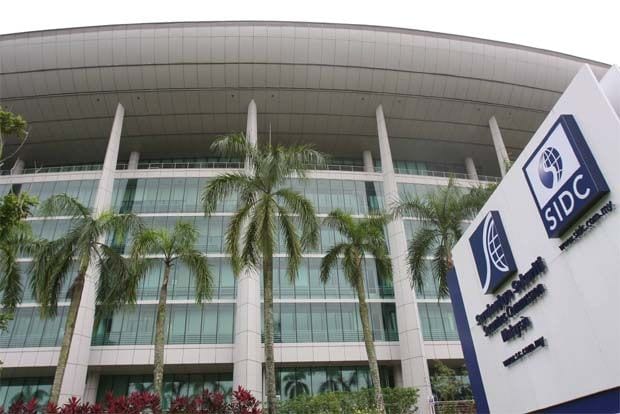“There have been numerous cases of active politicians being appointed – or “parachuted” – to helm the chair of some government-linked companies (GLCs) without their candidacy having gone through robust nomination process. Hopefully, such practice will be addressed with the introduction of MCCG 2021 and not taken lightly.”
— Lya Rahman, adviser to IICM
ON APRIL 28 2021, the Securities Commission (SC) released the revised or enhanced Malaysian Code on Corporate Governance (MCCG 2021) which places emphasis on board policies and practices on the selection and nomination process/criteria for directors as well as the tenure of independent directors.
Few new practices in the revised Code catch my attention at a time when I have been disheartened on the dismal situation facing public governance. The regulators have finally taken measures to further enhance the standards of corporate governance (CG) in Malaysia.
However, I strongly believe that it is not a wise idea for all relevant stakeholders to leave it to the regulators to call the shots – everyone must play their part instead of sticking to the old mentality that compliance only happens if mandated by laws and regulations.
Independent directors especially have a crucial role in ensuring that good governance practices prevail in their companies.
One important practice introduced under the MCCG 2021 is with regard to the appointment of active politicians on the boards of public listed companies (PLCs).
As someone who has always advocated strongly against the appointment of active politicians, I welcomed the introduction of this practice in MCCG 2021 given that PLCs are now discouraged to appoint active politicians on their boards.

There have been numerous cases of active politicians being appointed – or “parachuted” – to helm the chair of some government-linked companies (GLCs) without their candidacy having gone through robust nomination process.
Hopefully, such practice will be addressed with the introduction of MCCG 2021 and not taken lightly.
Instead of being populated by political appointees, companies should be managed, run and overseen by professionals sitting on their boards. Business should never be mixed with political agenda.
The incident where a politician was appointed as chairman of a PLC only to resign after a fortnight thus leaving the company with no chairman for a long time should not be allowed to recur.
Under the MCCG 2021 which adopts “apply or explain an alternative” approach, PLCs with active politicians on their boards would need to relook at their board composition. Interestingly enough, one wonders what will now happen to these political appointees – will they be removed or retained, or companies will continue to disregard the recommendations put forth in the MCCG 2021?
Very broadly, PLCs are now required to provide an alternative approach while large companies are required to commit a timeframe as to when they are able to comply with the recommended practice lest they will breach the Listing Requirements.
The key question now is how the monitoring process will be conducted. I am sure the SC and Bursa Malaysia will monitor the companies based on their commitment to the timeframe.
Another pertinent recommended practice relates to the application of two-tier voting – the SC has now mandated that two-tier voting will be the new norm at annual general meetings (AGMs) for independent directors who have served more than nine years.
The old Code recommended that two-tier voting should be carried out on independent directors who have served more than 12 years.
However, there are still recalcitrant companies that did not even table resolutions to retain their independent directors who have served more than nine years let alone conduct two-tier voting for shareholders to decide on the retention of these independent directors with more than 12-year tenure.
Ironically, some of these companies even announced the retirement of these independent directors but only to re-appoint them on the same day through board resolution to continue serving as independent directors.
The question is how regulators will look at such conduct which obviously shows disregard to the CG practice by disrespecting the rights of shareholders to vote on the retention of long serving independent directors.
To demonstrate that the regulators are truly eager to promote board succession planning as well as requiring boards to be refreshed and to prevent independent directors from overstaying, Bursa Malaysia is currently looking into amending its Listing Requirements to limit the tenure of independent directors up to 12 years.
This means that the said directors will either be re-designated as non-independent directors or vacate their positions as board members.
Indeed long serving independent directors have always been a concern given they may be too familiar with the management of the company thereby losing their sense of objectivity on issues or proposals presented at board meetings.
There should be no excuse on the inability to find suitable independent directors – after all, we now have the Institute of Corporate Directors Malaysia (ICDM) with a pool of suitable candidates that can be considered (subject to the nomination process to look at their suitability).
On the bigger scheme of things, I wish to reiterate that there is so much that the regulators can do – shareholders, too, have their role to play be the institutional or retail investors.
It is time now for even the retail shareholders to pay more attention to CG practices of their investee companies – to seriously exercise their rights to ask pertinent and relevant questions, and to vote against resolutions that are not in line with good CG practices so as to preserve the long-term value of their investments.
Under the new norm where virtual general meetings and on-line voting are being practised, shareholders should still make an effort to attend, participate and vote accordingly.
Records have shown that many long serving independent directors are still being voted in through two-tier voting – either because retail shareholders in particular are not bothered to cast their votes or fail to object the appointment of long serving independent directors.
The mentality that “our vote as a retail shareholder does not matter as it is a done deal” should be stopped.
Every vote counts. It is now the time for both institutional and retail shareholders to join hands to ensure that their investee companies adhere to good CG practices starting from the composition of the board while ensuring that the management is not beholden to the owners or major shareholders.
Against the backdrop of sustainability issues – specifically with the environmental, social and governance (ESG) criteria gaining more prominence with the whole world talking about climate change, treatment of employees and whistle blowing protection – shareholders especially the retail shareholders should also pay particular attention to the board’s role in monitoring and addressing such risks.
Lya Rahman is the Adviser to the Institutional Investors Council Malaysia (IICM) and was the former general manager of the Minority Shareholders Watch Group. The views expressed here are the writer’s own.
This article was first published here.
Photo by Alexander Schimmeck on Unsplash.

 5.0
5.0 





















